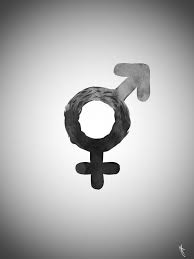
A young 19 year old girl studying in the top college of the country was consulting me and the topic of feminism came up and she asked if there is an allegation by the girl then what should be done. The obvious answer is that the boy would be suspended, and an inquiry done. She was angry and said that her Professor who is a feminist has told the class that what a woman says should be considered the truth and the boy should be punished and jailed. There is no reason to listen to the boy and how as a woman I should not even consider any other perspective. She went on to tell me how my response was considered patriarchal by the professor and her friends.
This is an example of toxic feminism which is a mirror image of toxic masculinity, both destroy the person and others around them. Toxic feminism is a term that refers to behaviors, attitudes, or beliefs within the feminist movement that are harmful or exclusionary. While feminism is an important movement that seeks to promote equality and justice for all genders, toxic feminism can cause harm to those who do not fit into certain definitions of feminism or who do not conform to certain beliefs or practices within the movement. It is becoming pathological for the younger generation. We need to remember that gender is biological first and then ideological and identity and self-image are products of how we negotiate through these.
Toxic feminism operates on discrimination, negative portrayal of men,exclusion and silencing dissent, and victimization. This occurs when individuals are not allowed to participate in discussions or activities related to feminism because they do not fit within certain gender or identity categories, or hold different ideologies.It silences women too. A mother who wants to be a stay at home mom is usually demonized for following “the patriarchy, “ and may be met with hostility or ridicule by some individuals within the movement, which can lead to feelings of shame, confusion, or alienation.
Toxic feminism can also promote discrimination against certain groups of people, such as men or individuals who do not identify as women and even women who do not agree with the ideology. This occurs when feminist principles are taken to an extreme and promote the idea that all men are inherently oppressive or that women are superior to men. This type of thinking can lead to a culture of divisiveness and animosity, which harms both individuals and the broader movement for gender equality.
Another way in which toxic feminism can harm victims is through a focus on victimhood. While it is important to acknowledge and address gender-based discrimination and inequality, a focus on victimhood can lead to a negative mindset and a lack of agency in one’s life. This can prevent individuals from taking action to overcome obstacles and achieve their goals and can lead to feelings of powerlessness and hopelessness.
To create an inclusive environment, we need to start by acknowledging that there is a problem. We need to –
1. Educate ourselves on what toxic feminism is and how it harms us all.
2. Speak out against toxic feminism when we see it happening. If you see someone engaging in or promoting toxic feminist ideals, tell them this isn’t okay. It can be challenging to do this, but we must stand up against these ideas.
3. Create safe spaces for people who identify as victims of toxic feminism.
Dr Chavi Bhargava Sharma is the founder and CEO of Indic Center for Psychological Wellness and Holistic Health and Conversationalists-Talking Cures.